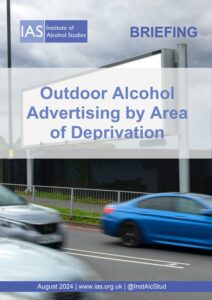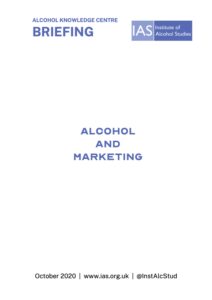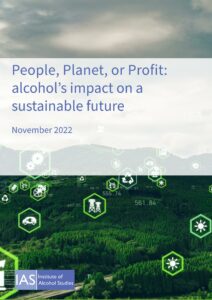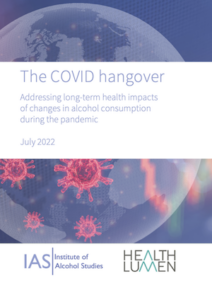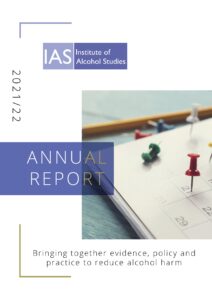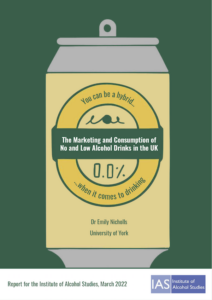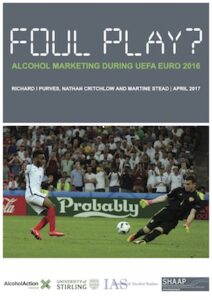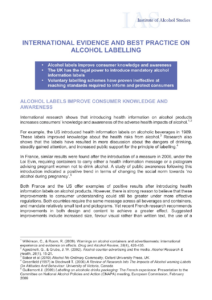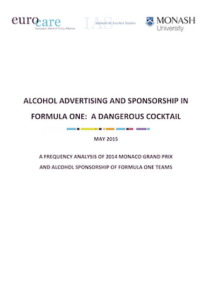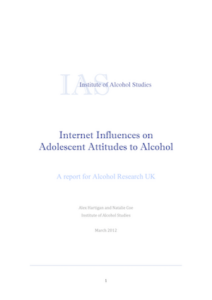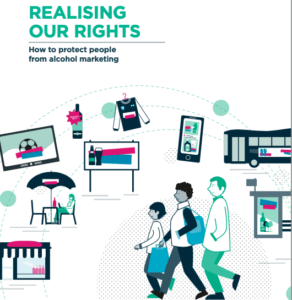On this page
Alcohol marketing includes advertising in traditional media outlets (such as print, television and radio), promotional activities in online and social media, and sponsorship of sporting and music events.
The alcohol and advertising industries argue that as alcohol is a legal product it should be legally possible for it to be advertised, while many argue that advertising is also concerned with recruiting new drinkers and increasing sales among existing (and especially) heavy consumers. Many see parallels between alcohol advertising and promotion and that of tobacco in the past.
The World Health Organisation (WHO) identifies comprehensive marketing restrictions as one of the three ‘Best Buys‘ for reducing the health harms of alcohol.
This page looks at how alcohol marketing strategies work, and their health and social implications.
Facts and stats
- Cross-sectional studies conducted in the UK have found that more than 80% of 11-19-year-olds were aware of exposure to alcohol marketing in the past month. (Critchlow, N, et al. 2019)
- Exposure to alcohol marketing develops brand preferences and positive expectations around alcohol among young people, creating and reinforcing social norms that alcohol is positive and aspirational. (AFS)
- Young people who are more aware of brands, or who have developed brand preferences, are more likely to drink more alcohol. (AFS)
- Alcohol marketing leads young people to start drinking earlier, to drink more if they are already drinking, and to drink at heavy or problematic levels. (Jernigan D, et al. 2016)
- Evidence suggests a causal role between alcohol marketing and drinking among young people. (Sargent and Babor, 2020)
- Alcohol marketing has been identified as problematic for vulnerable groups, such as those in recovery. Marketing can cue the desire for alcohol and can be a ‘trigger’ for relapse. (Alcohol Health Alliance, 2021; Alcohol Focus Scotland, 2022)
- Recent research identified persistent availability and marketing of alcohol was one of the largest risks to recovery. Participants also noted the difficulty of going shopping due to alcohol being at the front of shops. (Shortt, N., 2017)
- Sophisticated data-driven tools – such as social media algorithms – disproportionately target those who drink the most, potentially causing significant harm. (Carah, N. and Brodmerkel, S., 2021)
- People in recovery also can feel ‘bombarded’ with alcohol adverts on social media and the volume of adverts has even increased when they attempted to remove them from their feed. (Metro News, 2021)
- Gender advertising is a prominent feature of alcohol marketing.
- A rapid narrative review of literature on the subject found that recent developments in alcohol advertising strategies have shifted their messaging from female objectification to subjectification (self sexualising), where adverts containing sexualised imagery are aimed at women on the grounds of empowerment through sexual agency. (Atkinson, A. 2019)
- Analysis of marketing messages and strategies used by alcohol brands to target women on Facebook found a variety of gendered lifestyle messages and interactive strategies being used. This included a focus on pre-drinking, female friendship and bonding; relaxation and ’me time’; motherhood, gendered events and activities such as Mother’s Day and shopping; a focus on appearance, fashion and beauty, and the feminisation of marketing imagery (e.g. the use of pink, glitter and floral imagery). (Atkinson, A. 2021)
- Evidence suggests that young men may be more affected than young women are by broadcast advertising, especially for beer. (Fitzgerald, N, et al. 2016)
- Themes directed towards men in alcohol advertising include humour, relaxation, friendship and masculinity as well as sexual themes which often portray men exerting power over women. (Noel, JK, et al. 2017)
- Alcohol industry accounts for 20% of all sports sponsorship agreements worldwide. (Children’s Parliament, 2019).
- Sport sponsorship reaches from static advertising on stadiums and the pitch sides, to logos on players’ shirts, the goal posts and banners at press conferences.
- Analysis of the rugby union Six Nations Championship games found an average of 5 references to alcohol per broadcast minute. (Purves, R.I. and Critchlow, N., 2021).
- Many different sectors choose to associate with music festivals, but those with the most potential for success are alcoholic drinks, with 75% of festival goers spotting alcohol ads at festivals and 77% believing alcohol brand advertising would work best at festivals. (Marketing Week, 2009)
- It is estimated that alcohol brands spend more than $1.54 (US) billion annually on music festival sponsorship. (Hovland, R., 2015)
- A survey for a festival support service has found that 93% of festival goers liked the brands that sponsored the events; 80% were more likely to buy a product after engaging with them at a music festival; and 37% believed they had a better overall perception of the brand after the experience. (AEG and Momentum Worldwide, 2015)
- In 2019, a content analysis of alcohol content in reality TV shows popular with young people – including children – found all of the episodes contained alcohol imagery, and a study reviewing 50 episodes of the five highest-rated series on Netflix and Amazon Prime found 94% of episodes contained alcohol. (Barker, AB. Jnl of Public Health, 2019 and Barker, AB. BMJ, 2019)
- In 2018, there were 281 active sports sponsorship deals with the top 30 alcohol brands in the world, worth a total of $764.5m
How lucrative are alcohol sponsorship deals? by The Institute of Alcohol Studies
Briefings
Reports
Blogs
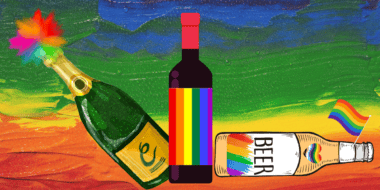
Rainbow-washing or genuine allyship? How alcohol companies target the LGBTQ+ community
10th March 2025

‘Dark Apps’ uncovered: popular alcohol tracking apps backed by the alcohol industry mislead users
25th February 2025

Alcohol calorie labelling might help change drinking habits
6th February 2025

Alcohol warning labels featuring lived experiences attract greater attention
7th January 2025

“Outta sight, outta mind?”. What do the public and professional stakeholders think about alcohol policy?
4th December 2024

Dragging their heels: the alcohol industry’s response to mandatory pregnancy warning labels
19th December 2023

Mistletoe and Wine: Alcohol advertising at Christmas time
5th December 2023

